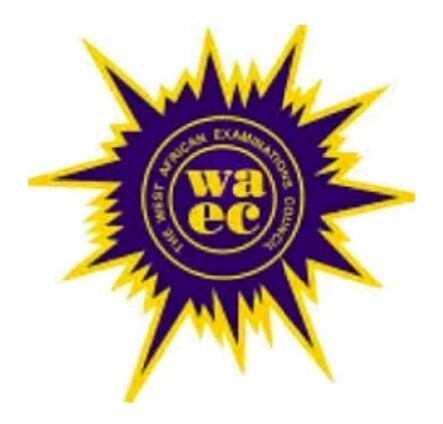Preparing for the Commerce examination requires a structured approach to ensure success. One essential tool that students must utilize is the WAEC Commerce syllabus.
This syllabus serves as a roadmap, outlining the topics to study, objectives to achieve, and the format of the exam.
In this blog post, we will explore the key points covered in the Commerce syllabus and recommend textbooks to aid your preparation.
Paper I and Paper II:
The Commerce exam consists of two papers, Paper I and Paper II, which together form a composite paper to be taken in a single sitting.
Paper I:
This section comprises fifty multiple-choice questions to be answered within 50 minutes, accounting for 50 marks.
Paper II:
Candidates will face eight essay-type questions and must select any five to answer within 2 hours, carrying a total of 100 marks.
Syllabus Contents:
-
Introduction:
- Definition of Commerce and E-Commerce
- History/Background of Commerce
- Scope of Commerce and E-Commerce
- Functions of Commerce and E-Commerce
-
Occupation:
- Meaning of Occupation
- Types: Industrial, Commercial, Service Occupation
- Factors that determine types of occupation/employment
- Career Opportunities
-
Production:
- Meaning of Production
- Factors of Production: Land, Labour, Capital, and Entrepreneurship
- Types of Production: Primary, Secondary, and Tertiary
- Division of Labour/Specialization
-
Business Units:
- Meaning and objectives of business
- Forms of business units: Sole proprietorship, Partnership, Co-operative Societies, Public enterprises, Companies, etc.
- Sources of capital for each form of business
- Amalgamations, Mergers, Acquisitions, Trust, Holding companies, Subsidiaries, Consortium, and Cartel
- Dissolution/Liquidation of Companies/Partnership
-
Trade Associations:
- Aims and functions of Trade Associations
- Chamber of Commerce, Employers Association, Consumer Association/Consumerism
-
Business Capital and Profits:
- Meaning and types of capital
- Credit: Meaning, Sources, Instruments, and Functions
- Calculation of working capital and its importance
- Profits: Meaning, types, and calculation
- Turnover: Meaning, calculation, and factors affecting turnover
-
Trade:
- Home Trade:
- Purpose and branches of trade
- Retail trade: Functions of retailer, Factors to consider in starting a retail business, Modern trends in retailing
- Wholesale trade: Functions of wholesalers, Types of wholesalers, Factors affecting middlemen survival
- Channel of Distribution: Meaning, Types, Factors for choice of channel
- Foreign Trade:
- Types: Import, export, and entreport
- Basic concepts in International trade, Advantages and Disadvantages, Barriers to Foreign trade
-
Purchase and Sale of Goods in Home and Foreign Trade:
- Procedure and documents used in business transactions
- Price Quotation and Terms of Payment
- Means of payment: Legal tender, cheques, drafts, bills of exchange, etc.
- E-payment methods
-
Finance and Financial Institutions:
- Money: Meaning, Evolution/History, Forms, Qualities, and functions
- Banks: Types and their features and functions, Bureau-de-change
- Insurance: Meaning, types, importance, procedure for taking a policy, underwriting, re-insurance
- Capital Market: Meaning, functions, methods of raising funds, stock exchange, commodity exchange
- Transport, Tourism, Communication, and Warehousing: Meaning, types, advantages, and disadvantages
-
Advertising:
- Meaning, Roles, advantages, disadvantages, types, methods, and media
-
Introduction to Marketing:
- Differences between market and marketing
- Marketing concept, customer services, sales promotion
- The Marketing mix (4Ps): Products, price, place, and promotion
-
Legal Aspects of Business:
- Areas of law relating to business: Contract, Agency, Sales of goods Act, Hire Purchase Act, Employer-Employee rights and obligations, Government regulation of Business, Registration of Business, Consumer Protection
-
Government Policies Relating to Business:
- Commercialization, Privatization, Deregulation
-
Introduction to Business Management:
- Meaning, objectives, functions, resources, organizational setup, business environment, social responsibility, inter and intra-departmental communications
-
Economic Groupings:
- Overview of various economic groupings and their objectives, membership, achievements, and challenges.
Recommended Textbooks:
- Senior Secondary Commerce, Book One, two, and three by M. O. Odedokun, P. C. Udokogu, and C. O. N. Oguji.
- Basic Marketing by McCarthy Jerome, E., William Perreault Jr.
- Marketing by G. B. Giles (The M & E handbook services)
- Consumer Behaviour by Prof. Achumba (University of Lagos)
Conclusion
To excel in the Commerce examination, it is crucial to study the Commerce syllabus diligently.
It provides a structured framework, enabling you to focus on the essential topics and concepts. Make sure to refer to the recommended textbooks for comprehensive coverage of the subject matter.
By utilizing the syllabus and studying the recommended resources, you will be well-equipped to tackle the Commerce examination with confidence. Best of luck with your exam preparations!






